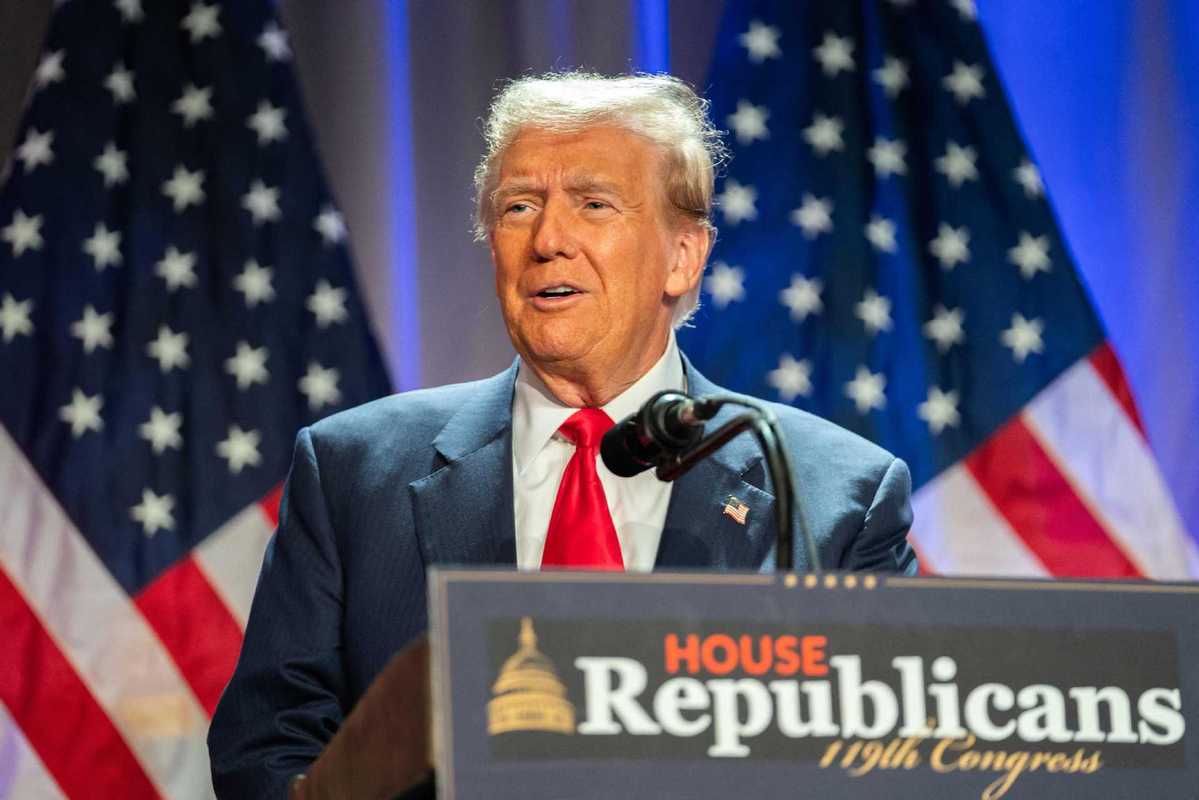
US president-elect Donald Trump [Photo/Agencies]
After US president-elect Donald Trump threatened on Monday to impose additional 25 percent tariffs on imports from Canada and Mexico, and 10 percent on imports from China, when he takes office on Jan 20, citing drug issues and illegal immigrants as the cause, both Mexico and China responded immediately that they will take countermeasures, if the tariffs materialize, while expressing their openness to talks.
Yet, after a "good call" with Trump one day later, Canadian Prime Minister Justin Trudeau held an emergency meeting with the country's premiers on Wednesday to discuss the steep US tariffs and seek to form a "united front". "One of the really important things is that we be all pulling together on this. The Team Canada approach is what works," Trudeau said.
After Trump's tariff threat, many of Canada's provincial premiers criticized Trudeau almost as much as they condemned Trump.
Ontario Premier Doug Ford, who also chairs the Council of the Federation, called the tariff threat serious at a news conference on Tuesday, saying that if Trump follows through on his threat, Canada would have no choice but to retaliate — something Trudeau has stopped short of saying.
Opposition leader Pierre Poilievre charged on Tuesday that the Trudeau government has been caught flat-footed by Trump's tariff announcement, and called for an emergency debate in the House of Commons and for Trudeau to take measures to bolster the economy in the face of the new threat.
The tariff threat should serve to prompt the Trudeau government to reflect on what Canada has gained from blindly following the US lead on almost all major issues over the years, especially in its dealing with China, Canada's another major trading partner.
Despite some positive changes in Sino-Canadian ties, marked by Canadian Foreign Minister Melanie Joly's visit to Beijing in July, the otherwise win-win economic and trade ties between the two countries took an ugly turn in August when Canada launched a 100 percent tariff on imports of Chinese-made electric vehicles and green products, following similar US moves.
Doing Washington's bidding, Canada has also continually interfered in China's internal affairs and hyped up so-called human rights issues in China.
The Trudeau government should draw lessons from the ups and downs of China-Canada relations over recent years and realize that upholding the country's strategic autonomy in handling international relations would best serve Canada's interests.
The foreign ministers of Canada and China have met in Munich, Beijing and Lima this year alone, and kept close exchanges via other means, during which the Canadian side has invariably expressed its commitment to promoting the development of Canada-China relations, and said that Canada is willing to properly handle differences, closely cooperate in multilateral mechanisms, and jointly do more to solve global problems.
Ottawa should walk its talk. The Canadian premiers' responses to the US' tariff threats should spur the Trudeau government to reflect on its groundless tariffs on Chinese exports to Canada, and whether only paying lip service is enough to fulfill its stated "commitment" to China relations.
China-Canada relations have long been at the forefront of China's relations with Western countries. The two countries share extensive common interests, and do not have conflicts of fundamental interests. China is willing to work together with Canada to handle differences in the spirit of seeking common ground while shelving differences, and strengthen cooperation through the principles of equality and mutual benefits.
The two countries are not rivals, let alone enemies, and should be partners of cooperation. While their economic complementarity harbors potentials for cooperation, their differences in system and culture should stimulate exchanges and mutual learning.
Next year marks the 20th anniversary of the establishment of the China-Canada strategic partnership. The two sides should return to their original intentions, draw the right lessons from history, earnestly honor their commitments on establishing diplomatic ties, and inject momentum into the normalization of bilateral relations.